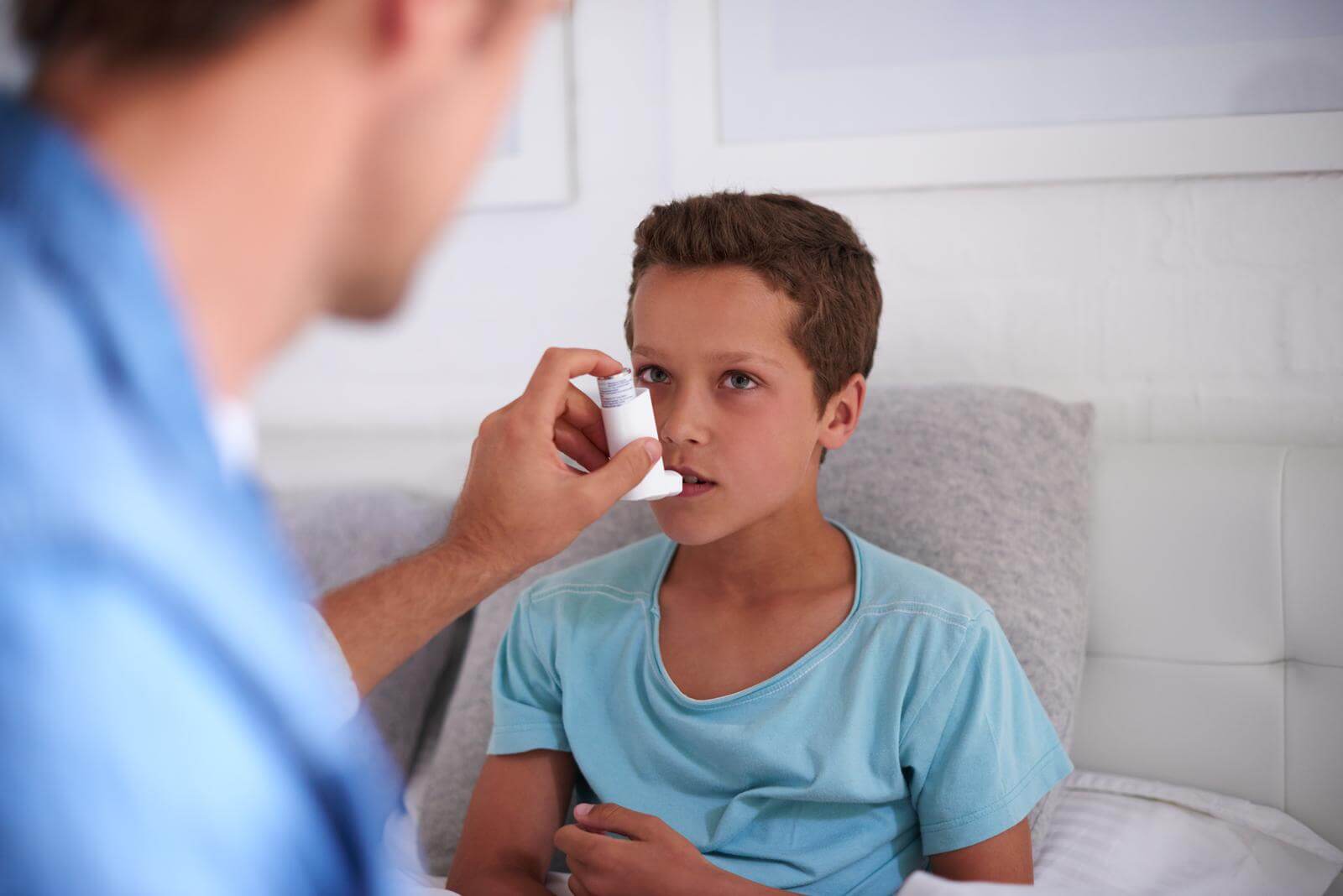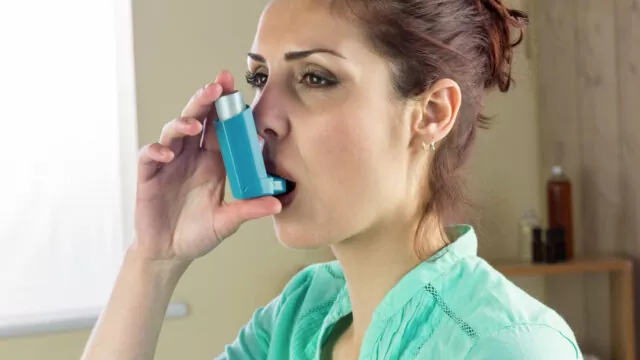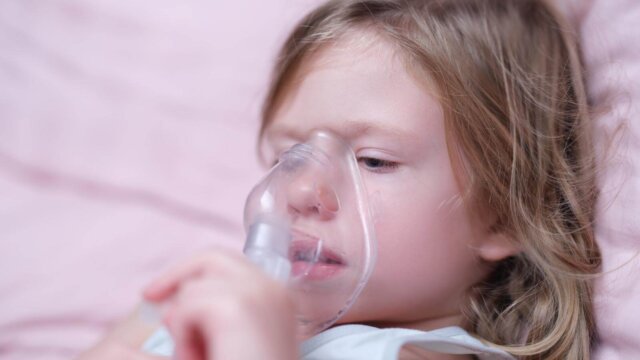FTC disclaimer: This post may contains affiliate links and we will be compensated if you click on a link and make a purchase.
Asthma is a chronic illness of the respiratory tract characterized by symptoms such as shortness of breath, wheezing, coughing, and stiffening of the chest muscles.
Kids’ asthma is more common these days. Statistical records suggest that 10-15% of US kids suffer from asthma. In the US, there are 20 million asthma patients. Out of these, 9 million are children.
Most kids suffer from their first asthma attack at the age of 5. Asthma is heredity. Therefore, if a kid is suffering from asthma, there is a high probability that the kid may have a parent or a sibling who is an asthma patient.
Moreover, kids suffering from asthma are allergic to animal dander. They should avoid keeping pets like cats and dogs as they have animal dander in their fur. This animal dander is similar to dandruff found in human hair. It is considered a powerful asthma trigger.
Kids Asthma Causes
Kids asthma occurs in children who have sensitive airways. They become more vulnerable to an asthma attack when they suffer from cold and flu. This is because their airways become more sensitive.
Some kids may suffer an asthma attack while playing or exercising. Asthma attacks can also be triggered by allergens such as pollen, dust, particulate matter, mold and fungi, and cold air.
The severity of asthma in kids varies. Therefore, some kids may need just rescuer inhalers wherein they inhale the medication only when they suffer from an asthma attack.
On the other hand, some kids may need controller medications to consume daily to control asthma. Kids suffering from asthma are advised to stay away from asthma triggers to avoid an asthma attack.
Kids suffering from asthma need special care and support from their school authorities.
Asthma is caused by a combination of environmental and genetic factors.
Environmental factors that can trigger asthma include:
- Secondhand smoke
- Air pollution
- Dust mites
- Mold
- Pollen
- Animal dander
Certain respiratory infections, such as the common cold, can trigger asthma symptoms.
Genetic factors also play a role in asthma. If you have asthma, someone in your family likely does, too.
What is Kids’ Asthma Symptoms?
Asthma is a chronic lung disease that inflames and narrows the airways. It causes repeated episodes of wheezing, breathlessness, chest tightness, and nighttime or early morning coughing.
Asthma affects people of all ages, but it most often starts during childhood. In the United States, about 6 million children under age 18 have asthma, about 1 in every 12 kids.
Childhood asthma can be frightening for both the child and the parents. However, treatments available can control asthma and help your child live a normal, active life.
Asthma symptoms can vary from mild to severe. They may come and go, or they may be constant.
Common asthma symptoms include:
- Shortness of breath
- Wheezing
- Chest tightness
- Coughing
Asthma symptoms usually occur when the airways are inflamed and narrow. This can happen in response to a trigger, such as an exercise or an allergen.
Asthma attacks, or episodes, can range from mild to severe. During a mild attack, you may be able to continue your normal activities. But a severe attack can make breathing difficult and require emergency medical care.
Kids Asthma Classification

Kids’ asthma can be classified into four categories depending on the asthma symptoms.
Mild intermittent asthma
If your kid suffers from asthma symptoms such as wheezing, coughing, and shortness of breath not more than two times a week, he is said to suffer from mild intermittent asthma. In this case, an asthma attack is rare.
Mild persistent asthma
If your kid suffers from asthma symptoms such as wheezing, coughing, and shortness of breath more than twice a week but not more than once a day, he is diagnosed with mid-persistent asthma.
In this case, an asthma flare-up affects your kid’s physical activity.
Moderate persistent asthma
These kids suffer from asthma symptoms daily and require a daily dose of asthma medication to control their asthma. In these kids, asthma flare-ups occur more than twice a week.
The flare-ups last several days and affect the physical activity of kids.
Severe persistent asthma
Kids with severe persistent asthma have continuous asthma symptoms.
Asthma flare-ups also occur frequently, and some flare-ups may give rise to emergency cases and hospitalization. Due to severe asthma, these kids can handle only limited physical activity.
All kids with asthma are advised to follow an effective asthma management plan. They are advised to take their medications and avoid asthma triggers and strenuous exercises that could trigger an asthma attack.
They are also required to monitor their breathing with a peak flow meter.
How Is Kids Asthma Diagnosed?
If you or your child has asthma symptoms, make an appointment to see your doctor.
Your doctor will ask about your medical and your family’s medical history. He or she will also ask about your symptoms and when they occur.
To confirm the diagnosis, your doctor may order one or more of the following tests:
- Pulmonary function test. This test measures how well your lungs are working.
- Allergy test. This test identifies substances that trigger your asthma symptoms.
- Chest X-ray. This test can rule out other conditions that cause similar symptoms.
- Bronchoscopy. This test allows your doctor to look inside your airways.
How Is Kid’s Asthma Treated?
There is no cure for asthma, but it can be controlled. The goal of asthma treatment is to control the symptoms and prevent asthma attacks.
Asthma treatment may include:
- Avoiding triggers. This is the most important step in controlling asthma.
- Medications. These can help control inflammation and open the airways.
- Inhaled corticosteroids. These are the most effective medications for controlling asthma.
- Bronchodilators. These medications can open the airways and relieve symptoms.
- Immunotherapy. This treatment can help reduce the severity of asthma attacks.
Your doctor will work with you to develop a treatment plan that is right for you or your child.
With proper treatment, most people with asthma can control their symptoms and live normal, active lives.
The Bottom Line
It is important to be aware of the symptoms, causes, and types of asthma in children to manage better and treat the condition. If you think your child may have asthma, consult a doctor for a diagnosis.
There are many effective treatments available that can help your child lead a normal, healthy life.








